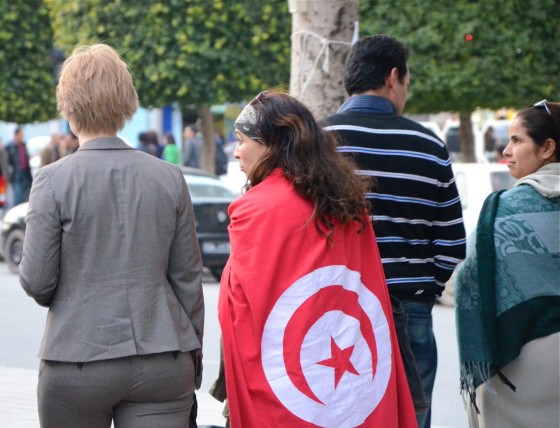 Tafline’s reporting trip to Tunisia has evolved into a personal odyssey that has revealed a side of the country Wikipedia can’t convey.
Tafline’s reporting trip to Tunisia has evolved into a personal odyssey that has revealed a side of the country Wikipedia can’t convey.
I’ve been in Tunisia since Tuesday afternoon and almost every day has been fraught with challenges. This is typical of travel, of course. Few things ever go smoothly, belongings are lost or broken, and then figuring out how to to fix these problems outside of your home country is tricky. But for most people who travel, getting to the other side of the obstacles is partly what makes the experience so worthwhile.
Although I came to Tunisia to learn about the country’s green initiatives, so far my personal odyssey has revealed aspects of life in this country that Wikipedia will never convey. Read on to learn more about my adventure and five things about this North African country that might surprise you.
The roller coaster ride started immediately. Unwittingly, my arrival in Tunisia coincided with an Independence Day celebration and a massive protest by secular Tunisians who don’t support a radical Islamic government. Which brings me to the first thing Wikipedia won’t tell you about this slip of a country.
1) The majority of Tunisians are European-minded.
Despite being predominantly Muslim, Tunisians are among the most moderate of the Arabs. In part this is because the French occupied the country in 1881 and weren’t officially booted out, politically, until 1956. Their influence is evident in the street side cafe culture, lampposts, some architecture, and in the way men and women dress. Also, since Italy is only a short ferry ride across the Mediterranean Sea, Europe and Tunisia have enjoyed close trading ties for hundreds of years.
On Wednesday after work, I rushed to a mall just off the main drag downtown (Avenue Habib Bourguiba) to purchase a USB data stick from Orange, the main telecommunications company, so that I can expand my internet access beyond very relaxed operating hours at internet cafes. But I was nervous about buying a modem since last year while I was in neighboring Morocco my USB stick turned out to be a colossal waste of money as a result of the country’s shoddy telecommunications services. Not so in Tunisia.
2) The telecommunications sector in Tunisia is very advanced.
Even though I actually did read this on Wikipedia before leaving, I was skeptical. But it’s true. The woman who processed my request at Orange was incredibly efficient. I’ve never had service like that anywhere in Africa. Ever. Her grasp of the company’s policies and computer software was incredible, and the modem itself is very affordable. For roughly $30, I received a brand new USB stick that can be used with any data sim card anywhere in the world, along with 7GB, and so far it works like a charm. The same scenario in South Africa comes with a pile of red tape, costs at least three times as much, and nobody smiles when they serve you.
Unfortunately, the USB did not work on my computer, so I had to return to Orange to get it fixed. Within about twelve seconds they installed the correct driver and I was good to go. I thought “great, I’m on my way,” but the universe had different plans for me. After I left the mall to make an appointment, my brand new Nikon D7000 camera strap broke – the factory strap – and the $2,000 camera around my neck went flying. I had to crawl under a car to retrieve some of the pieces. After some inappropriate exclamations and a few tearful Skype conversations, what did I do? I sent out an SOS on Facebook and the cavalry came to my rescue.
3) Tunisian people are among the kindest on the planet. Truly.
My friend and Green Prophet reader Dan Farberoff read my cries for help and went out of his way to locate local Tunisian companies that might offer camera equipment for rent so that I can meet a story deadline. One man, Ramses from Godolphin Films, called around and found me a rental camera, but it was going to cost $150 a day. When I told Ramses that this was not in my budget, he offered to let me borrow his personal camera. Bear in mind that the man has never laid eyes on me in his life. And then a few hours later, one of the internet cafe owners showed up with a compact little Samsung from his home. I have it with me in my room because I didn’t have the heart to tell him I probably won’t use it.
After much ado, I decided to invest in a second camera. Not a super fancy one, but one that can take images that are good enough for an important magazine story due on Sunday. So I looked around and it turns out that Sony, Samsung, and Panasonic are the preferred brands here, so I had to travel a good 15 minutes by taxi outside of Tunis to a giant Carrefour shopping center to get either a Canon or Nikon. Here’s something else Wikipedia never mentioned.
4) There are massive, sprawling malls in Tunisia that are like any super Walmart except a little less tacky.
The quality of the food, clothing, and produce seems superior than in the United States and the staff are friendly and helpful, though they do have to be persuaded that the customer is right. After some good old American perseverance, I managed to convince the electronics team that I couldn’t buy a camera unless I had a chance to test it, and that I should be allowed to open my laptop to research each brand without getting hauled out of the place. Here’s something else that caught me by surprise, though it’s not the most positive aspect of my experience: Tunisia still allows smoking everywhere – even inside the food court.
While I was at the Carrefour, I bought some laundry detergent. The people who work at my hotel were unable to tell me where I can wash my clothes. So instead of spending another hour of my precious time trying to find someone else to do my dirty laundry for me, I decided to do it myself. But the man at reception had a different idea. He helped me sneak my clothes into a tiny little top loader on the hotel roof that is usually off limits to guests and swore me to secrecy. All I wanted was a bucket, but I ended up getting an apple, an orange, a bag of clean clothes, and a few pats on the arse.
5) That’s right. Physical affection is not nearly as frowned upon in Tunisia as it is in other parts of the Arab world.
I want you to know that I was willing to let the first pat on the arse go, but the second and third seriously raised my defenses. A lone female traveler can never be too careful so I gave the old man a piece of my mind. I explained that he would never have touched a Tunisian woman the way he had touched me, at that point multiple times. He categorically denied this and said he would do the same to any woman.
“Let me put it to you this way,” I said to him. “I say it’s not ok. It’s my body and I don’t want you to touch it. I don’t care what everyone else does.” He was probably quite terrified at that point (because when necessary, I can be a very fierce person) and promised to never touch me again. And here’s the thing: I believed him. This goes back to the kindness and respect that I feel more in Tunisia than I have in any other Arab country.
Although this is a blog about environmental issues, sometimes it’s fun to share with our readers what we go through to bring you news from under-reported areas in the world. Until the Jasmine Revolution last year, nobody ever thought about Tunisia; yet despite decades of autocratic rule, this little nation wedged between Algeria and Libya is quietly becoming one of the most advanced in all of Africa.
Not only does Tunisia boast one of the most ambitious renewable energy programs in the MENA region, but the women are politically active, and its youth are pushing all kinds of cultural and social boundaries while retaining their rich and diverse heritage.
Stay tuned as the adventure continues to unfold.
More stories from Tunisia:
An Independent Tunisia at Night (PHOTOS)
5 Stories for a Greener, Freer Tunisia
Tunisia Announces 4th Desertec Deal and 2GW of Solar

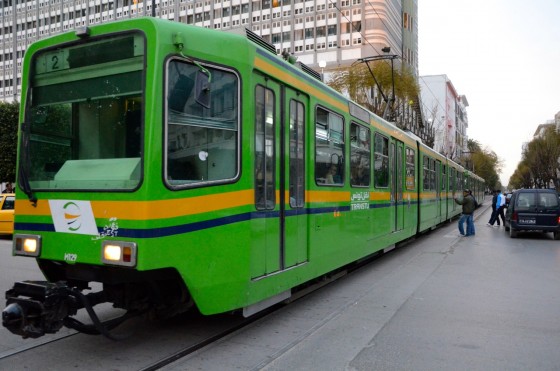
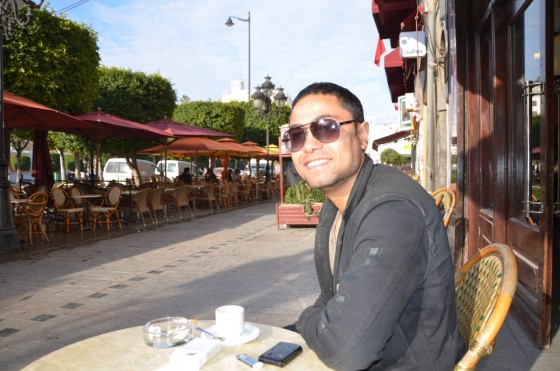
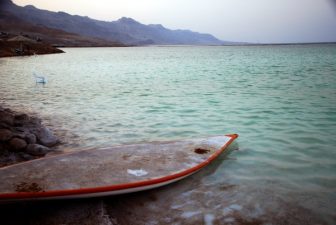
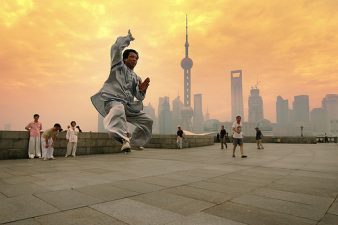
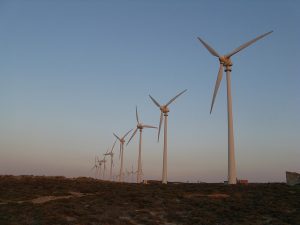
thanks Tafline for this great post. tunisians are european-minded indeed. unfortunately some people think all arabs and muslims are terrorists & such things. anyway, there’s another thing about tunisians: we can pronounce french like french people ;)) (mostly)
Relly I think that all tunisian are good and friendlly I visited tunisia 31 times and I enjoyed tunisia I viseted gafsa tozer tunis gbelli djeeba beja sousse hammamet ain drahem carthage…. and people there are so nice !!whene I travel to tunisia I feel tunisian not american relly they are nice and friendlly and all yes all places are good!! american must look at the mirror we are the most people hated in the world !!! we think we are the best but we are the worst !!!
Why the headline brings Wikipedia into this is unknown, because Wikipedia’s article on Tunisia actually does say most of these things, though not in as much detail, especially about Tunisians being European minded, developed and less socially restrictive than almost any other Arab/Berber nation.
About the only thing it does not tell you is Tunisians are the kindest people on the planet.
What’s really odd is that since Wikipedia is a product of individual contributors, anyone feeling that information on Tunisia is lacking in Wikipedia can just add it to the article as long as they can provide backup.
Really enjoyed reading this article, simply for the fact that as westerners we do have a lot of misconceptions about countries in places like Africa or the Middle East. I am a New Zealander living in Australia but have some online friends from other nations. One guy I am friends with posted photos of areas in Tripoli (I think) before and after the recent conflict in Libya. People were telling him the images of the modern buildings must have been photoshopped.
Reading about a country is nothing like visiting it. I will be sure to add Tunisia to my list for places to see in my up and coming travels.
I’m sure this is just a typo but we are not between Algeria and Morocco. I can guarantee we were WAY too close to Libya during their own revolution.
As a Canadian who moved to Tunis 2 years ago with my family, I can also say that I think Tunisians are lovely, friendly people. We have always felt welcome here and have gotten to know quite a few of the shop attendants who wave and say hello whenever we see them.
As for the massive sprawling malls. I think you saw the 1 of 2 in the country. It’s certainly not a shopping mecca although there are lots of fun little stores in which to find interesting Tunisian handicrafts. These stores are the most fun as the proprietor is usually very pleased to have business and will be overly helpful and sometimes will even give you a small “cadeau” as a thank you. I have a full set of tea glasses from all my “thank yous”!
Thank you for letting a few more people know more about this wonderful country. I hope you enjoy the rest of your stay!
Hi Natasha, thanks so much for pointing out my typo. I’ve updated the post! I agree that the small local stores are far more interesting… I think I mentioned the mall after realizing that some of my American think of Tunisia as a dusty village sans services and such. You’re very lucky to live here. I could in a heart beat as well!
We actually have more than 2 of them but it’s true that we still don’t have that many of them
Great Post Tafline, I agree with the fact that -not just Tunisians- but all Arabs are relatively nicer to foreigners than they are to their fellow citizens, well because of their hospitable nature towards guests, but they also know that tourists are a source of income. Nevertheless, it should still be considered a smart & positive behavior, that reflects the country’s image as a friendly one.
As for the locals’ relationship with one another, many factors in the past 18 months of Arab spring, led to an increased feeling of insecurity between citizens, resulting in a rougher and tensioned behavior on the streets. It’s just a matter of time till calmness and security are restored locally.
Hope you’re having a safe and fun trip in Tunisia, and sorry to hear about your camera!
Thanks Rashed. Yesterday I really got a taste of the friction between locals as the Islamists staged a march in downtown Tunis on the same day that theater groups demonstrated in full costume outside the Municipal Theater. It was perfectly peaceful, but the tension is palpable. Thanks for reading.
your welcome ! the north-west is beautiful !! ain draham
Why do you think Wikipedia can’t or won’t include such information about Tunisia? Do you think that Wikipedia has some bias against Tunisia, or some interest in spreading inaccurate information about Tunisia? Wikipedia is, after all, the encyclopedia that anyone can edit. You could familiarize yourself with Wikipedia’s policies, discuss the matter with other editors interested in Tunisia, and help improve the article. Why not?
Jim, the point is there are some things you can’t learn about a place until you’re there experiencing it. No bias against Wikipedia.
@Mr Othman, @Miss Laylin, My own believe is that going to the south and north west and all other part of Tunisia will strengthen the idea of Miss Laylin got about Tunisians. Peoples out of the capital are certainly more calm therefore more friendly.
Miss Laylin have a good trip in Tunisia of the revolution, I hope you are welcome every where.
Best regards
That’s interesting Othman. It’s true that I have not traveled outside of Tunis yet, so it’s definitely worth noting that. But I am sorry to hear that Tunisians are not always so friendly to one another.
Although I don’t think it is possible to call my experience a cliché, since this is what I have experienced in my very brief time here, I am interested to travel beyond the capital.
Thanks for reading and for sharing your insights.
Dear Miss,
As a Tunisian citizen who did travel around the world I could tell you that Tunisia is not Tunis the capital, I suggest that you go to the North West and to the South of Tunisia and you will see the differences. Also if you don’t mind I would like to emphasize that Tunisians behaves differently with western foreigners compared to their fellow Tunisians therefore they are not friendly as you think. The bottom line of my comment is according to me there are too much clichés in your article.
Regards.